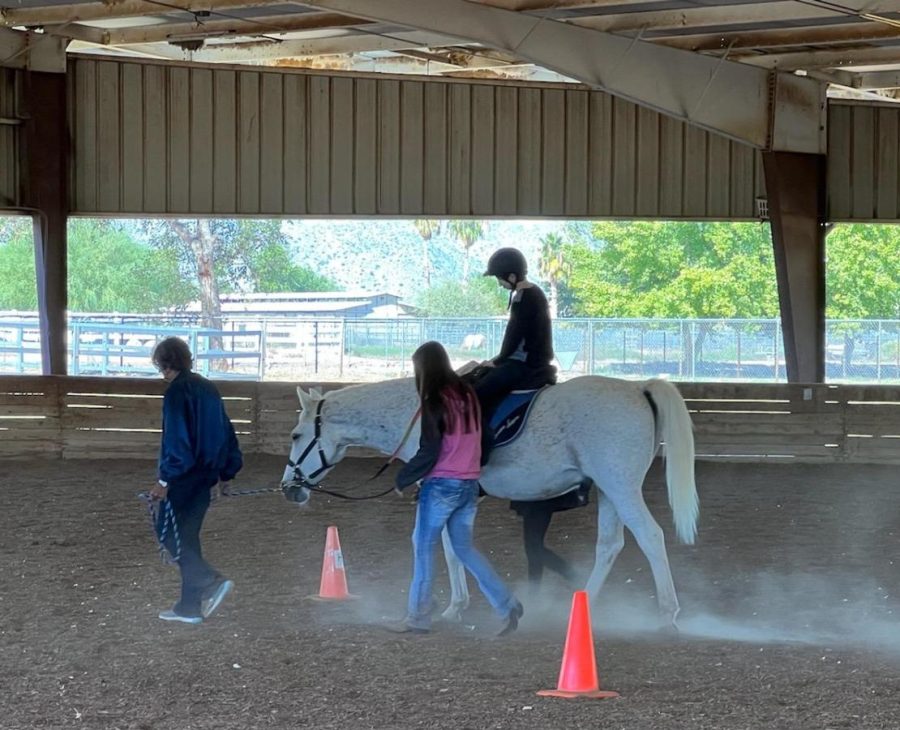Silver Lining Riding offers a source for physical, psychological therapy, horsemanship
Courtesy of Silver Lining Riding
Riley Amator during a session at Silver Lining Riding
November 15, 2022
From outside Silver Lining Riding’s arena in Waddel, Ariz., Kristie Amator cheers on her son, Riley, who is beaming as he rides a horse.
Riley is participating in adaptive/therapeutic riding.
Adaptive/therapeutic riding is used to help riders with special needs strengthen their muscles, motor skills and reflexes. It has also proven effective in reducing psychological distress and improving psychological well-being, even six months after treatment.
The rhythm and motion of horseback riding, like a human walking, is what makes it therapeutic.
“It covers OT (occupational therapy), speech and physical therapy all in one session. We’re really working that deep core. Riley is standing on one leg to lift one leg over[then] getting back off the horse. [Also] being able to just sit up tall and hold his head strong. And, he’s using his voice to do commands—go, stop. [He learns] to follow directions and respond. And then OT, using all that fine motor and some gross motor. When we come out here, we get all of that,” Amator said.
Adaptive riding is therapeutic but should not be confused with Equine-Assisted Therapy (EAT).
In EAT, a therapist (with the assistance of horses) leads a therapy session. Sometimes it involves riding, but not always.
In adaptive/therapeutic riding, horse specialists and certified volunteers adapt the horse riding to the needs of the rider.
A one-hour session costs $65 and is split between adaptive/therapeutic riding and horsemanship.
Horsemanship includes the groundwork of grooming, tacking, and walking the horse.
On a weekly basis, at-risk youth and individuals from a local group home come out to Silver Lining Riding’s arena to participate in horsemanship exercises.
“It helps with building confidence, problem solving, self-esteem. There’s just something about a 1200-pound animal that will listen to you that builds so much,” said Cori Morris, Silver Lining Riding’s Lead Instructor/Program Manager.
Individuals also experience a decrease in anxiety and depression.
Morris says this is because around the horses, you’re able to “forget about everything.”
However, it’s important to note that equine-assisted activities are not for everyone. Allergy suffers as well as those who are afraid of horses will likely not benefit from these activities.
Furthermore, insurance does not cover adaptive/therapeutic riding and many adaptive/therapeutic riding centers, like Silver Lining Riding, have waitlists.
Although, as Riley continues to ride happily around the arena, the benefits are apparent.
“If we had to pick one thing and give up every other therapy and service that we have, this would be—by far, the first thing we would keep,” Amator said.


